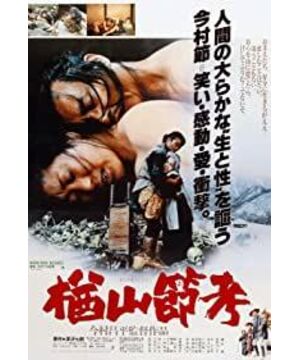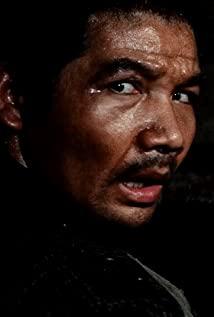In a chaotic and primitive village, the satisfaction of food, sexual desire and death is the top priority.
I always feel that the story of carrying an old man on his back and abandoning it in the mountains has also been heard in my childhood. Both China and Japan have experienced the farming era of relying on the sky for food. At that time, there were no clear laws and morals, and people mostly relied on some established habits to live and judge. "Narayama Festival Kao" does use a cold lens to narrate this cruel story, but it does not explicitly criticize this history of poverty and ignorance.
At the end of the film, A Lingpo sits upright between the bones and the snow, and resolutely stops her son Chen Ping from crying, which is quite divine. After she had fulfilled all her wishes and settled all her children, she peacefully welcomed death. The original animal nature is revealed everywhere in the film, but at this moment, the judgment of good and evil is diluted in compassion. The worship of reproduction and the continuation of life is a noble belief in an environment of extreme mortality.
Suddenly I remembered the father who was beaten to death by Chenping because he did not want to carry his old mother up the mountain. When Chenping cried on Mt. Nara, would he think of him? The trivial spark of human nature fell on such a land, and immediately dissipated in the back of the son who kicked the father who did not want to go up the mountain off the cliff. The observation of man is more painful than the observation of animals, and human nature is always inextricably intertwined with animal nature.
People here are all dying to death, what is the ideal? The pursuit of happiness? free? Just survive, survive, or survive. In the face of difficult survival, there is neither good nor evil, no shame or shame.
View more about The Ballad of Narayama reviews











